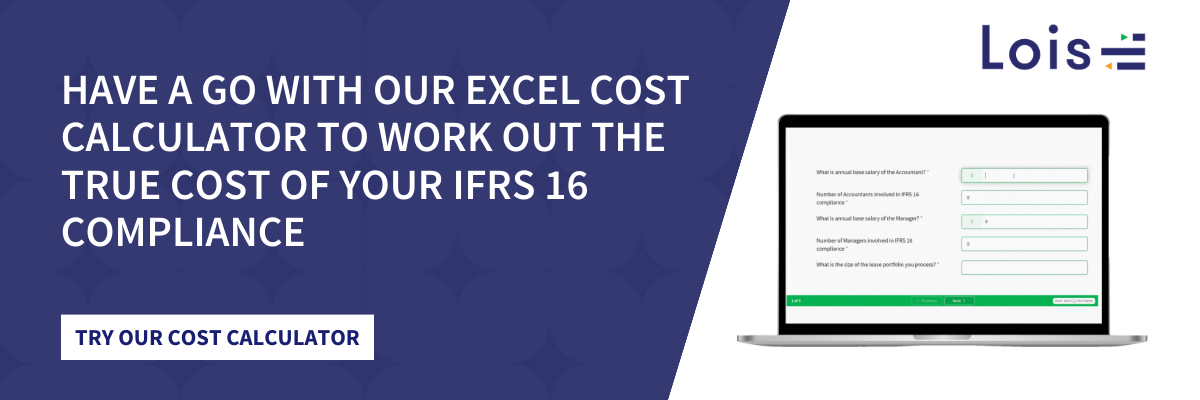It is often our experience that C level executives consider IFRS 16 / AASB 16 solely a compliance exercise and as such approach the new standard with a certain reluctance to investing in new systems. Additionally, the complexities associated with IFRS 16 are often overlooked until departments are in the depths of rolling out new business as usual (BAU) practices covering the new standard.
.png?width=560&name=Blue%20Sweet%20Tooth%20Blog%20Banner%20(2).png)
This leads to an inevitable adoption of Excel by organisations and their accounting teams tasked with transitioning and maintaining IFRS 16 accounting. Whilst IFRS 16 accounting using Excel may appear to be the way forward for many CFOs, there are significant pitfalls associated with this approach, depending on the complexity of the business.
In this blog explore the pros and cons of using spreadsheet applications such as Excel for the transition to IFRS 16 and maintaining ongoing compliance post implementation.
The Pros of Spreadsheet Accounting
- Entities and their employees are familiar with, and well-accustomed to, using spreadsheets
- Simplicity - no software implementation required
- Spreadsheet solutions have been previously used by organisations as a path to compliance for former accounting standards e.g. IAS 17, IFRS 15, IFRS 9 etc
- Seemingly lower cost barriers
- No additional hosting requirements
- Readily available/immediate, familiar and understandable
The Cons of Spreadsheet Accounting
- Building efficient spreadsheets is often dependent upon, and limited to, the capabilities of the builder/owner
- Difficulty exists in troubleshooting, navigating and reviewing spreadsheets
- Excel lacks the critical controls needed to preserve the integrity of data
- Spreadsheets are always vulnerable to changes either through deliberate or accidental human interventions/errors that are extremely difficult to isolate and correct
- Difficulty in tracking by who, when and where changes are made – proving problematic for auditing purposes
- Although spreadsheets may appear a cheaper option, they do require more maintenance and may even require external support (at a cost) to sustain
- A significant amount of manual processes is required to support the use of spreadsheets (e.g. backup/disaster recovery etc)
- No independent verification by an expert
If you’re interested in a deeper analysis of the the pros and cons and tools to help you evaluate the best approach you can download our latest whitepaper , or reach out today.
